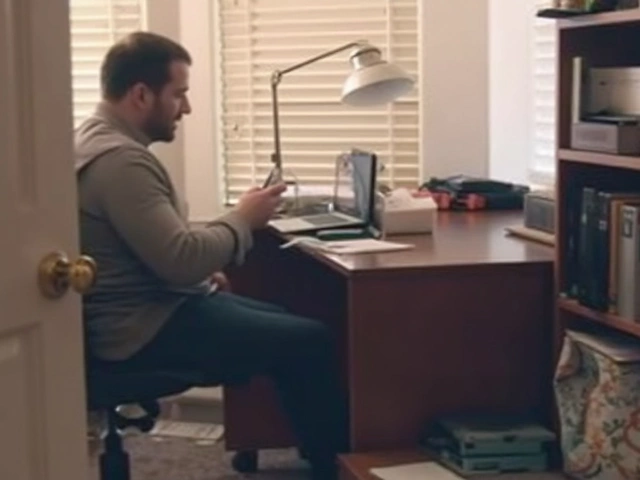A seaside stay that wasn’t a holiday
The lift doors opened to a corridor lined with prams, laundry bags and the soft hum of a kettle boiling behind thin walls. A traveler at a British seaside hotel expected the usual off-season quiet. Instead, they were the only tourist. Every other guest was there because the council had few other options. The hotel had become a holding pen in Britain’s housing crisis.
Scenes like this are no longer rare. Councils across England are booking thousands of rooms each night as stopgaps for families evicted by landlords, care leavers, people fleeing domestic abuse, and those priced out of private rents. The spending has ballooned—around £3 billion a year, according to sector estimates—turning parts of the hospitality industry into an emergency arm of the welfare state.
For the traveler, the difference was obvious: no bar chatter about day trips, no jangling keys from stag parties, no flyers for boat tours. Instead, laminated notices about safeguarding, a reception desk that doubled as a support point, and breakfast slots staggered to avoid overcrowding. Housekeeping was less about turndown service and more about keeping corridors clear for pushchairs and school bags.
Hotel managers say these bookings kept them afloat after the pandemic and through a cost-of-living squeeze. In many coastal towns—where cheap B&Bs and faded guesthouses sit side by side with family attractions—block contracts from local authorities can mean stability in the winter months when tourists vanish. But that stability comes with a new mission: providing safe, basic shelter for people in crisis.
How hotels became overflow housing
In England, local councils have a legal duty to help people who are homeless or at risk. That duty, strengthened by the Homelessness Reduction Act 2017, often starts with finding somewhere—anywhere—safe for the night. When social housing is scarce and private rents outpace benefits, councils fall back on what’s available: B&Bs, budget hotels, roadside inns. Statutory guidance says families shouldn’t be kept in B&Bs for more than six weeks, and placements should be as close to a person’s home area as possible. In practice, those ideals are being stretched by sheer demand.
The pipeline into these rooms has grown for familiar reasons. Rents jumped faster than wages. Local Housing Allowance—housing benefit for private renters—was frozen for years and still trails actual market rents in many areas. No-fault evictions have risen. New social homes haven’t kept up with need. When you add in households escaping violence and people leaving institutions without secure housing lined up, the result is mounting pressure.
Official figures in recent years have shown more than 100,000 households in temporary accommodation in England, the highest since the mid-2000s. Councils and charities call it unsustainable: too expensive for local budgets, too unstable for families, and too blunt an instrument for the complex realities of homelessness. The £3bn figure covers a spectrum—from nightly B&B bookings to longer block arrangements—and the costs eat into money that could otherwise fund prevention or build homes.
What does this look like inside a hotel? Rooms are stripped back for durability, with lockable fridges and microwave stations common where kitchens are absent. Staff get safeguarding and conflict de-escalation training. Security guards cover late shifts. Key workers may visit to help residents with benefits, school places, or GP registrations. Packed lunches replace buffet spreads during the school term. At check-in, the conversation is less about Wi‑Fi and more about curfews, visitors, and support needs.
For residents, it’s shelter but not stability. Families juggle school runs across town from a single room. Parents try to cook with a kettle and a plug-in hot plate. Job seekers struggle to keep appointments when they’re moved between addresses at short notice. People with health needs find stairs, noise, and lack of privacy make recovery harder. None of this is what hotels were designed for, but it has become the stopgap that most councils can secure quickly.
The knock-on effects ripple through coastal economies. Tourism boards worry about reputation when headlines fixate on “homeless hotels,” even though problems typically stem from the shortage of housing, not from the people placed in it. Some hoteliers quietly withdraw from tourist bookings during long-running council contracts because mixing markets is difficult. Others try a hybrid model: tourists at weekends, block bookings midweek. Either way, the vibe shifts, and so do local routines.
There are also tensions with residents living near clusters of booked-up B&Bs. Some complain about noise or litter; others about the strain on GP surgeries and schools. Charities counter that stability—not churn—is what reduces disruption, and that placements work best when councils provide wraparound support. Most people in these hotels are simply waiting for a door to open somewhere more permanent.
Councils say they would rather not use hotels at all. They point to a small menu of unappealing choices: spend more on nightly rooms, place people far from their support networks, or leave them on the street. Many are trying alternatives. Converting office buildings into flats has accelerated in some cities. Modular homes on council land can be delivered in months, not years. Some authorities buy and refurbish empty houses to let at social rents. Each option requires upfront cash and planning permission, both in short supply.
For the hospitality sector, the pivot to public service comes with business questions. A direct council contract can look safer than chasing seasonal tourists, but it ties up rooms and changes staffing needs. Insurance policies, licensing conditions, and fire safety plans often need updating. Hoteliers talk about balancing duty of care with guest expectations, whether the guest is a family moved at midnight or a traveler who just wants a quiet base for a coastal walk.
And what about the traveler who finds themselves the only holidaymaker at breakfast? Most adjust. A hotel can be both a place to sleep after a day at the pier and a roof for people with nowhere else to go. The awkward part is accepting that the UK’s housing shortage is now visible in spaces that used to be purely leisure. That visibility is the point. It brings an abstract budget line—temporary accommodation—into view as bunk beds, school uniforms laid out on a double mattress, and a kettle doing stand‑in duty for a kitchen.
If you zoom out, the policy trade‑offs are stark. Keep spending billions on short-term rooms, and councils avert rough sleeping but drain funds needed to build. Rebalance towards prevention—rent arrears support, mediation, landlord incentives—and fewer households reach crisis, but savings take time and political patience. Expand social housing, and pressure eases, but planning and construction timelines stretch over years. The hotel corridor is where these choices land while the system catches up.
For now, seaside towns—magnetic in summer, quiet in winter—will keep carrying part of the load. The same cheap rooms that once drew budget travelers are the easiest stopgap for housing teams under pressure. And so an ordinary booking becomes a glimpse of an extraordinary shift: hospitality doubling as social infrastructure, one night at a time.
- Why it’s happening: rising rents, limited social housing, and benefits that lag the market push more families into emergency placements.
- Who pays: local councils, often using a mix of housing budgets and grants, with costs now running into the billions each year.
- Who’s affected: families, care leavers, people fleeing abuse, and single adults—alongside hotels and coastal economies navigating a new normal.
- What could help: faster delivery of social homes, flexible rent support, limits on long hotel stays for families, and more “move-on” options to cut churn.








Write a comment